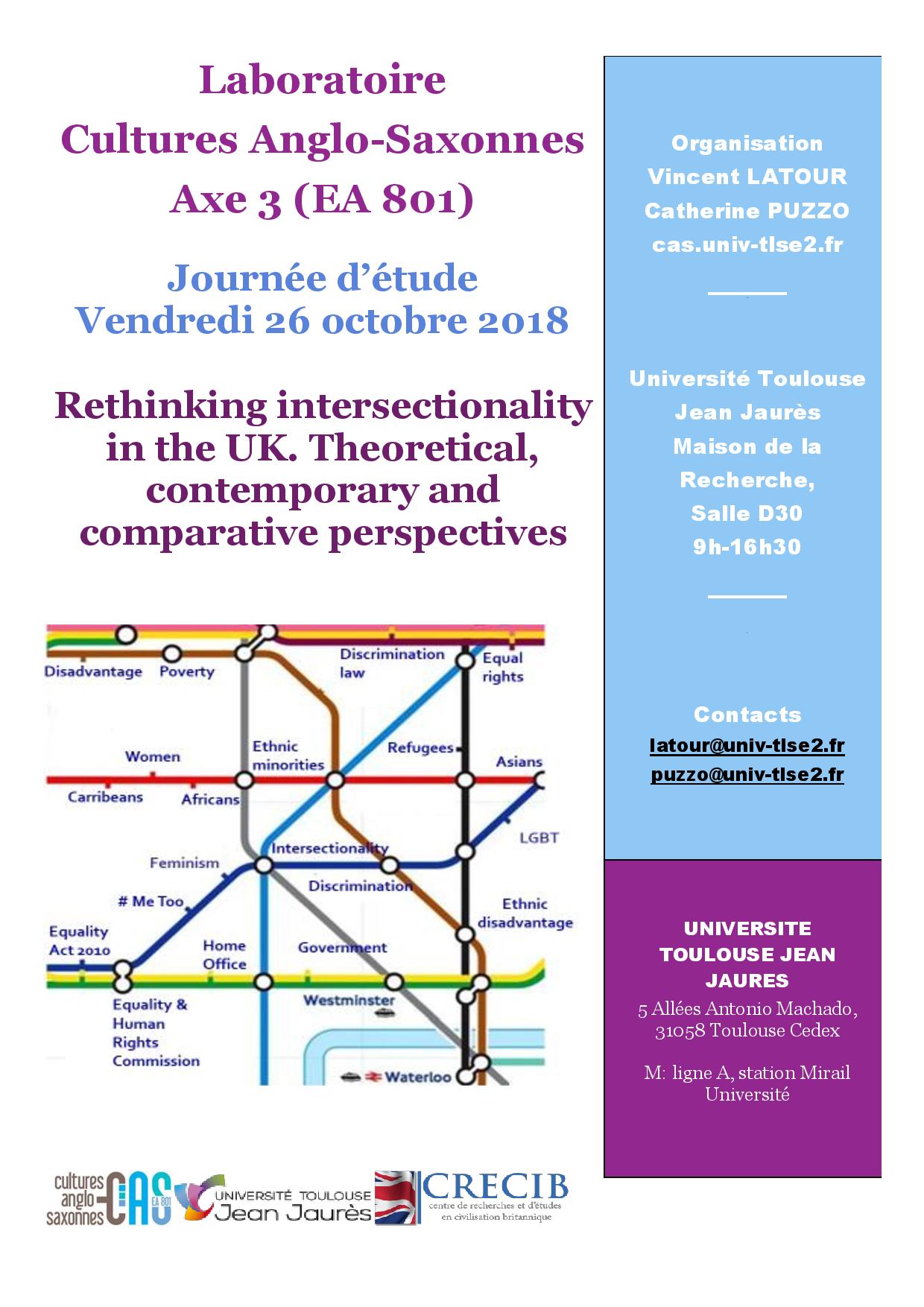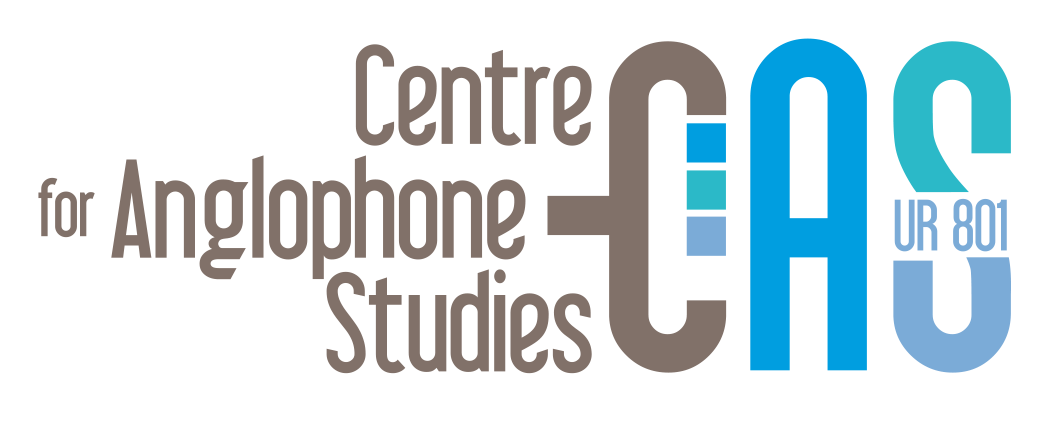-
Partager cette page
Rethinking intersectionality in the UK. Theoretical, contemporary and comparative perspectives

Intersectionality may be broadly defined as the overlapping of several processes of discrimination on the grounds of gender, race and class resulting in distinct forms of marginalisation, disadvantage and inequality. It will be the aim of this one-day conference to conceptualise further, investigate and document the relevance of intersectionality in contemporary Britain, in relation to e.g. women’s social and / or economic position; their involvement in or their connection with local or national politics or feminist groups. The weight of patriarchal constraints within certain communities and the role of the State in perpetuating that situation constitute possible angles for participants. Comparisons with other European or Western countries are welcome.
9H30: Welcome
Morning session - Chair: Hélène CHARLERY (UT2J / CAS)
9H45-10H15
1/Michael STAMBOLIS (Université Bordeaux Montaigne) :“Conceptualizing the Dimensions of Discrimination: A History of Intersectionality as a Social Scientific Tool.”
10H15-10H45
2/Alexandrine GUYARD-NEDELEC (Université Paris 1 Panthéon-Sorbonne) "Equality and Human Rights Commission & Equality Act 2010: how intersectional?"
10H45-11H00: Pause
11H00-11H30
3/Susan BALL (Université Paris 8) “Intersectionality in the production of the built environment
11h30-12h00
Questions
Afternoon session - Chair: Marc LENORMAND (Université Paul Valéry-Montpellier 3 / EMMA)
14H00-14H30
4/Nadia KIWAN (University of Aberdeen) “Intersectional perspectives on the #MeToo movement in France and the UK.”
14H30-15H00
5/Clémence FOURTON (Université de Poitiers) “« We, as intersectional feminists »: intersectionality as praxis in contemporary British feminism »
15h00-15h15: Pause
15h15-15h45
6/Marie-Agnès DÉTOURBE (INSA, Toulouse) “Rethinking Intersectionality in the UK through access to higher education for refugees.”
15h45-16h30
Questions / concluding remarks

